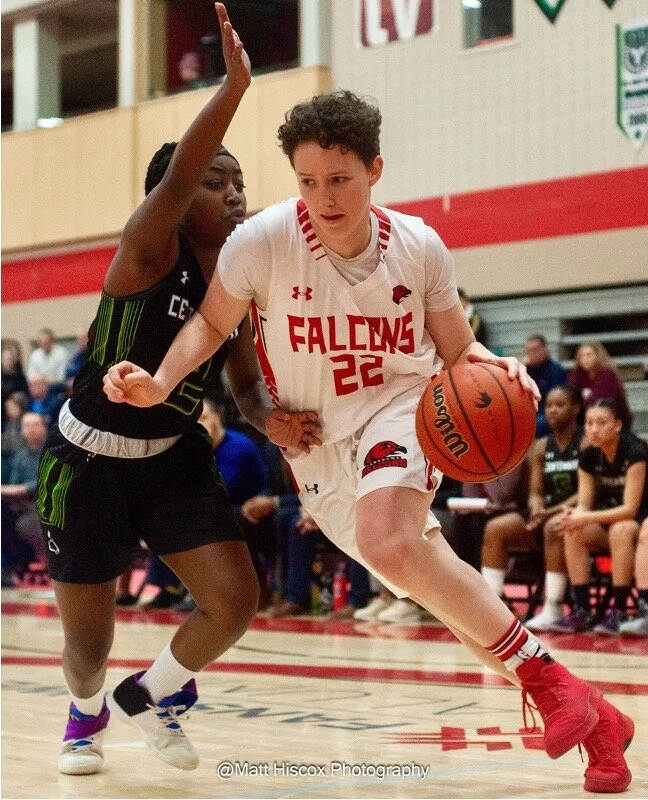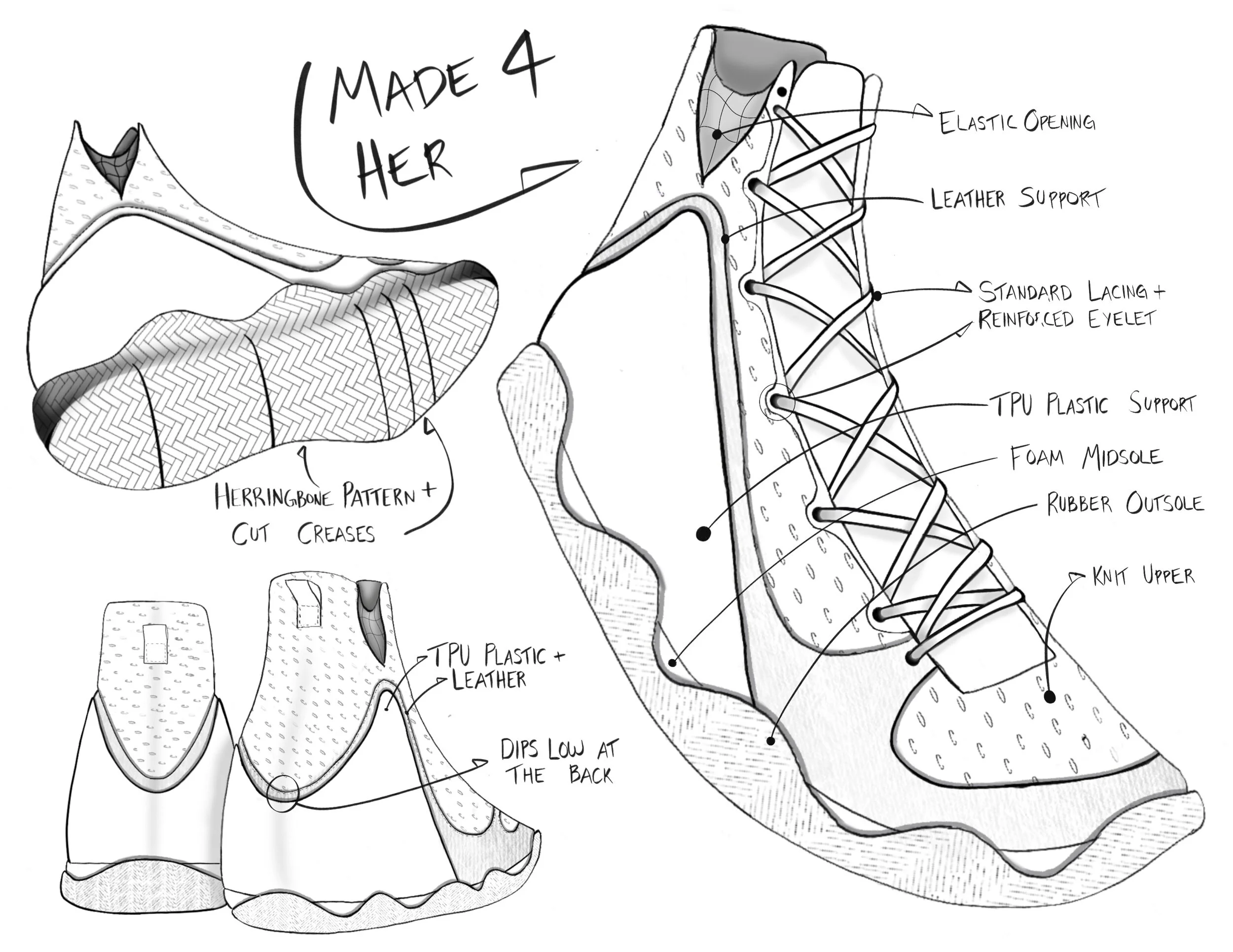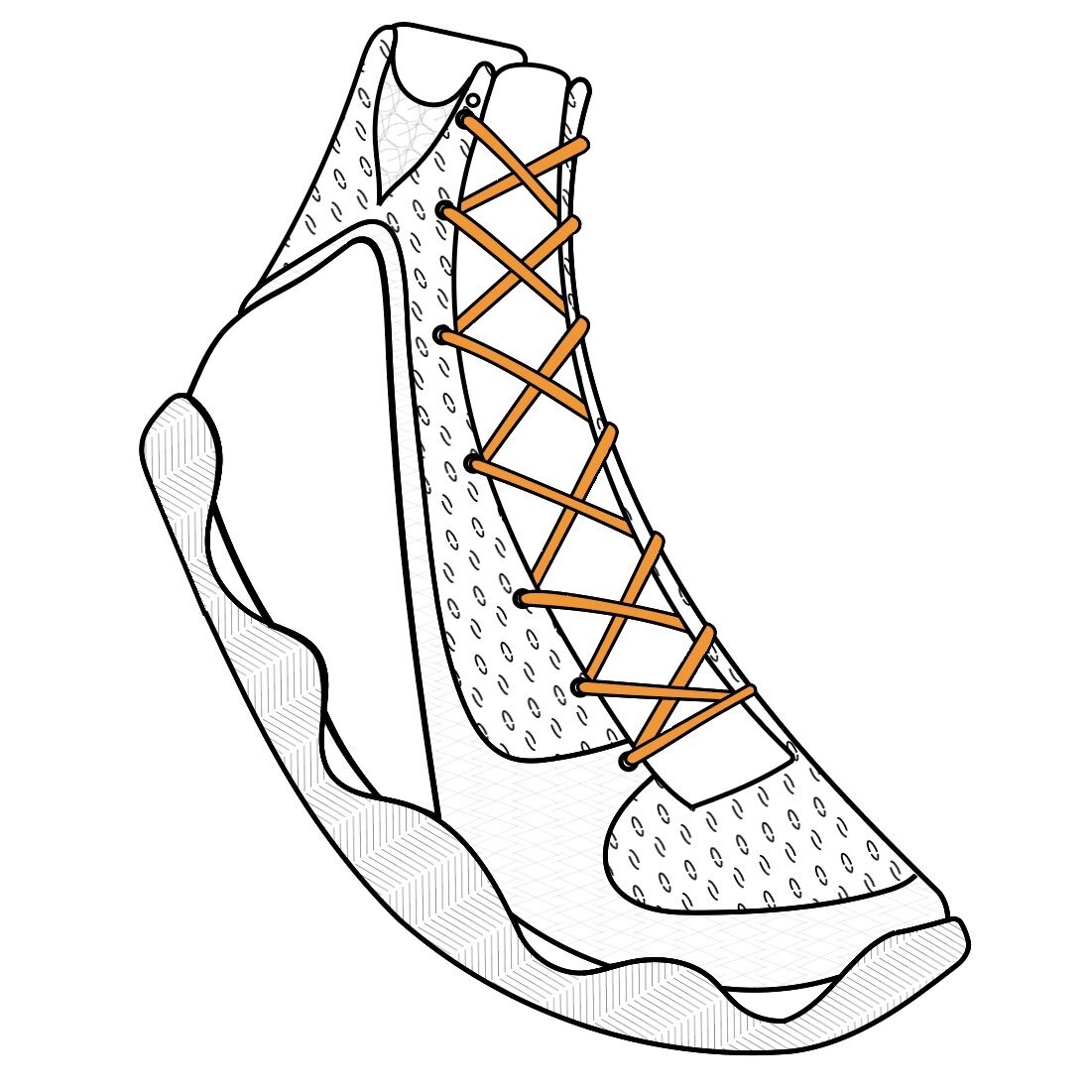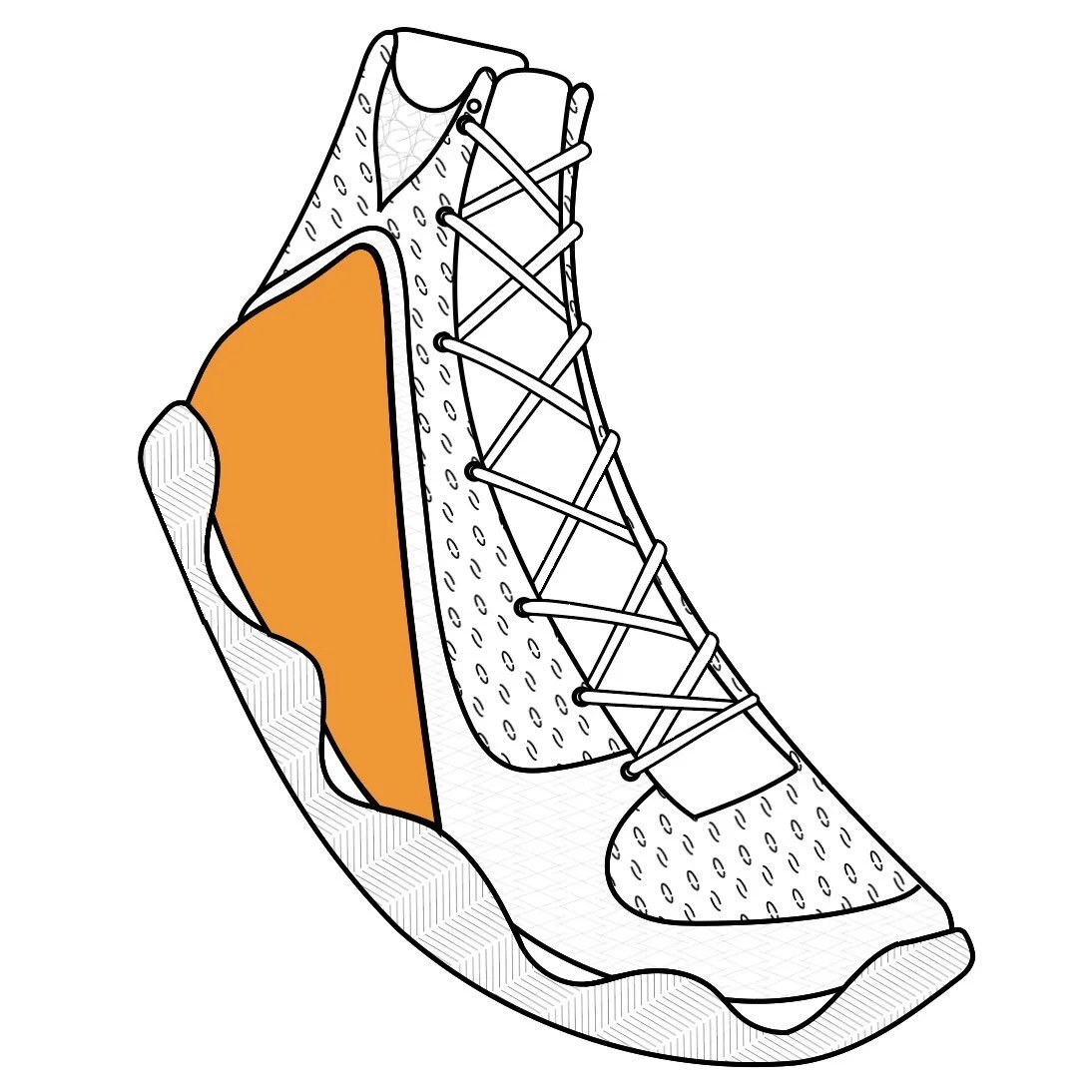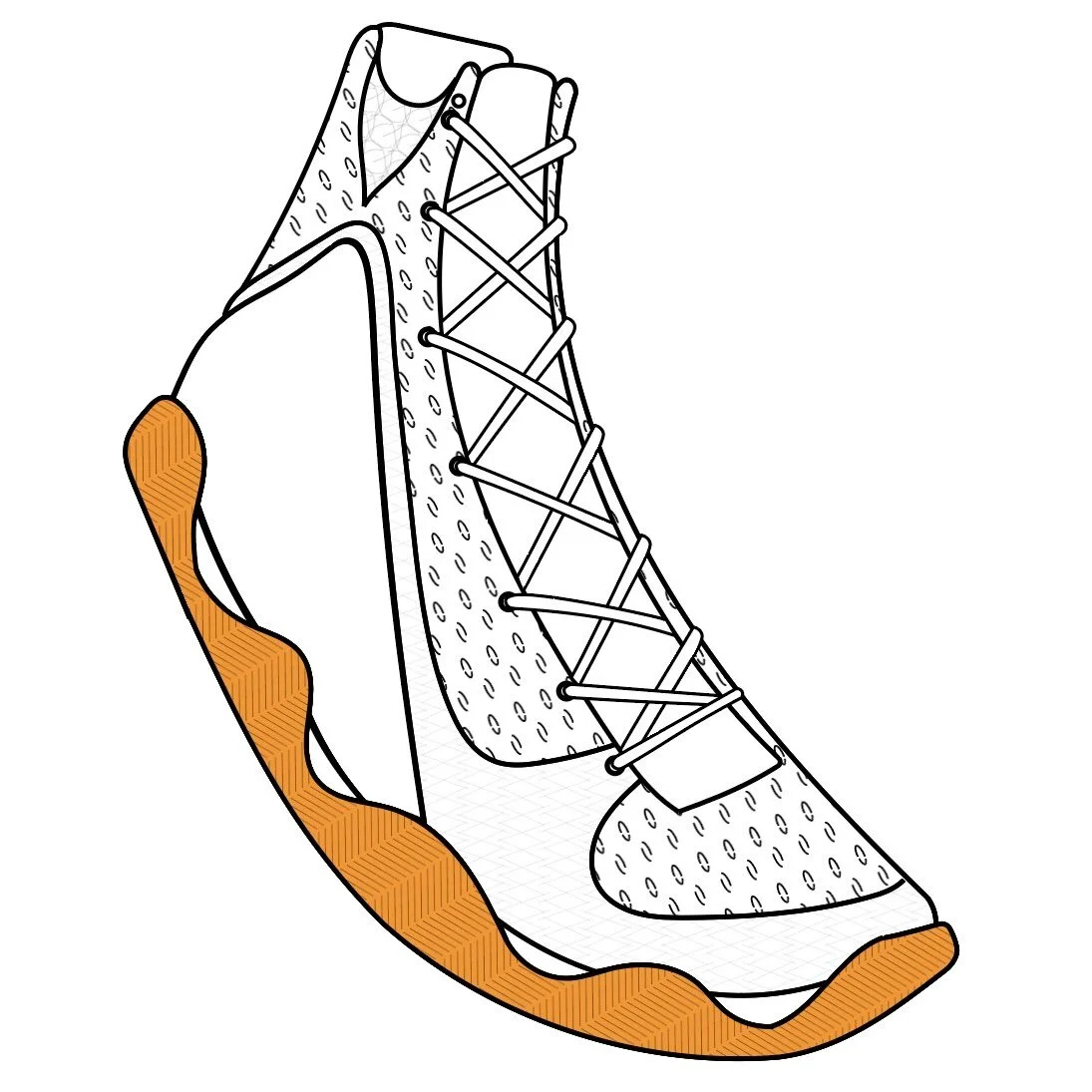BASKETBALL SHOES: WOMEN’S PREFERENCES AND PURCHASING BEHAVIOUR
Rethinking basketball shoes for the female player
Fashion Design and Product Development
2020
Academic
Ontario, Canada
Affiliation: Ryerson University
Author: Kaleigh Morris
Second Author: Dr. Sandra Tullio-Pow
Overview: Women have played basketball since the game was invented over 130 years ago, yet they are overlooked when designing and marketing basketball shoes, which default to men’s styles, fit and sizing. Multiple phases of inquiry were used to determine women’s basketball shoe preferences and purchasing behaviour including: a content analysis of basketball shoes from Nike, Adidas and Under Armour websites, interviews with female basketball players and visual analysis of their personal shoes. Data was categorized according to functional, aesthetic, and expressive attributes. The findings reveal information pertaining to brand perception, product assortment, fit issues, design and colour preferences, shopping challenges and solutions. The results reinforce the need to consider anthropometric data regarding the size and shape of women’s feet and suggest opportunities for improved design, namely, collaboration with professional female athletes to create a signature shoe. The findings are important to product developers, designers, and retailers.
Learnings: The focus of my Master’s research project was on women’s basketball shoes. What I learned completing this project can by applied to design in general and product development. Conducting interviews was new to me, I learned how to interact with participants in a profession manner to get quality answers. I further improved my knowledge about the importance of human centered design. This was my first project focused on apparel design and product development. I was able to learn a great deal about the deign process.
Project Summary
Being a basketball player myself I found that women are overlooked when designing and marketing basketball shoes, this is what inspired my research project.
Research Questions
The goal of this study was to better understand women’s shoe preferences to inform improved design and product development of women’s basketball shoes. The guiding research questions for this study were:
What factors influence the purchasing behaviors of female basketball players in Canada when choosing their basketball shoes?
How does this compare to the selection of basketball shoes being targeted and sold to women?
Research Methods
Multiple phases of inquiry were used to determine women’s basketball shoe preferences and purchasing behaviour including:
a content analysis of basketball shoes,
interviews with female basketball players, who play either College or University basketball and
a personal inventory and visual analysis of their personal shoes.
Content Analysis
The purpose of the content analysis was to get an understanding of the current market of basketball shoes for women. To do this collected both the visual and written data from the women’s basketball shoe sections of the Nike, Under Armour and Adidas websites.
From the content analysis I found that most of the shoes made available to women were:
Made by Nike
Associated with male NBA players
Mid-rise shoes
Made of textile with a foam midsole and rubber outsole
Have a herringbone traction pattern
Offered mainly in men’s sizes
Personal Inventory
Participants provided photographs of two to four of their favourite basketball shoes. The visual analysis of these shoes provided insight into what the women looked for in basketball shoes, which they further elaborated on in the interviews.
Most of the shoes owned by the participants were:
Made by Nike
Signature shoes (accosiated with male NBA players)
Standard lacing
Neutral colours (grey, white, or black), some with accents of colours
There was an equal number of low-rise, mid-rise, and high-rise shoes.
Interviews
Interviews were conducted to gain further insight into purchasing decisions. The interviews focused on participants’ experiences buying basketball shoes and the design attributes that influenced their purchasing decisions. Themes in the data included purchasing challenges, purchasing criteria, and shopping preferences.
Purchasing challenges
Lack of footwear designed specifically to fit women’s feet.
Participants recounted how few women’s basketball shoes were available on brand websites.
The shoes that participants identified as women’s shoes were described as ugly and lower quality.
Instead participants would buy youths’ or men’s shoes.
But found kids shoes were not made for how intensely they play and men’s shoes would not fit correctly.
Purchasing Criteria
Shoe height chosen based on personal need:
Preference for low, mid and high rise shoes was split evenly
Preferences split between neutral shoes with colourful accents and colourful shoes.
Participants expressed interest in a female player having a signature shoe
Preference for Nike shoes;
other brands considered if there was something special about the shoe
Shopping Behaviours
Participants had varying shopping behaviours;
Some would shop online and others in-store.
Those who shopped in-store preferred to do so because they are able to try shoes on.
Participants who shopped online did so because they felt there was a more diverse selection of shoes available.
Final Shoe Design
The final shoe design was created based of participants preferences. I took in to consideration what needs were not being met by the current selections of basketball shoes for women and created a shoe perfectly designed for them.
Design Features
